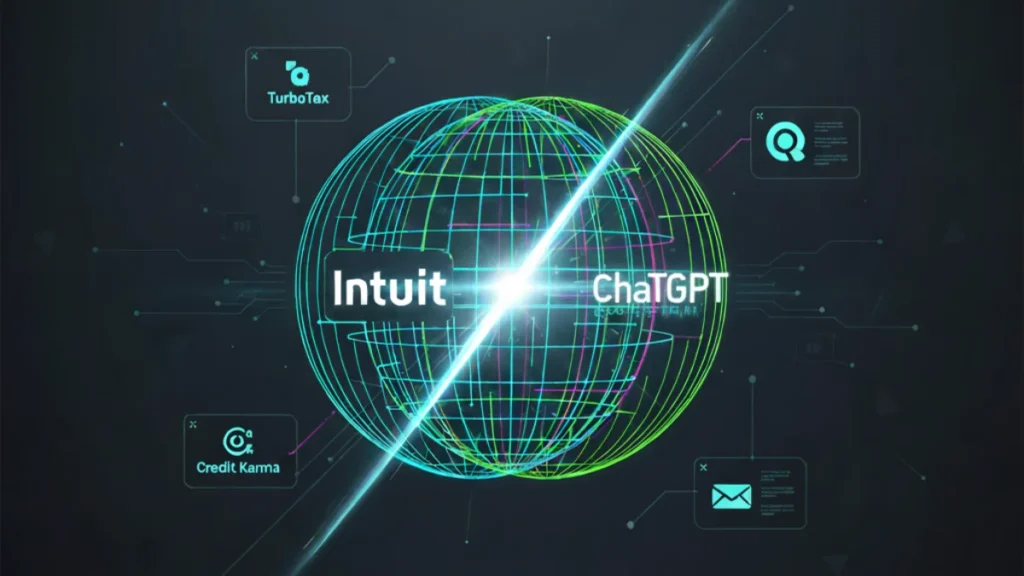Intuit has signed a deal worth more than $100 million with OpenAI, marking one of the largest financial-software integrations into ChatGPT to date. The agreement will bring the company’s entire portfolio — TurboTax, QuickBooks, Credit Karma and Mailchimp — directly into ChatGPT for the first time.
The move signals a new phase of AI-powered financial tools, where daily money decisions, tax prep tasks and business workflows can be initiated by a single prompt.
Why This Deal Matters
- TurboTax, QuickBooks, Credit Karma and Mailchimp will run inside ChatGPT.
- Users will be able to estimate taxes, review credit options, and manage business tasks.
- Intuit says its validation systems reduce the risk of incorrect AI guidance.
- Liability questions remain over who is responsible for AI-influenced financial errors.
- The partnership expands Intuit’s use of OpenAI’s advanced models across its business.
A Big Swing for Financial AI
While ChatGPT already supports apps from travel, education and productivity platforms, Intuit is the first major financial-software provider to embed high-stakes tools into OpenAI’s ecosystem.
With the user’s permission, ChatGPT will be able to pull in data from Intuit apps, generating personalized responses that can influence real money decisions — like which credit card to apply for, how much tax you might owe, or whether your business finances are on track.
Unlike other AI integrations where mistakes are mild inconveniences, errors here could have financial consequences.
Intuit’s Accuracy Play
Intuit says it has spent years building domain-specific datasets and internal guardrails designed to limit “hallucinated” responses — one of the biggest concerns when applying generative AI to regulated industries like tax prep and lending.
A spokesperson said Intuit uses multiple validation layers to ensure responses are grounded in the customer’s own financial information and the company’s internal tax and accounting expertise.
However, one question TechCrunch pressed — whether Intuit or the customer absorbs liability if the AI provides incorrect guidance — was left unanswered, raising eyebrows across the fintech space.
From Tax Prep to AI Agents
This deal also gives Intuit broader access to OpenAI’s most powerful models for its own products. The company already runs a mix of OpenAI, proprietary and open-source models, and last year launched Intuit Assist, an AI layer that automates tasks across its software suite.
Expanding into ChatGPT gives Intuit a massive new distribution channel, putting its tools in front of millions of global ChatGPT users — from freelancers and small businesses to individuals sorting out tax deadlines.
A High-Stakes Test for AI in Finance
The integration arrives at a moment when governments and regulators are still figuring out how to monitor AI used in personal finance.
If Intuit’s rollout succeeds — both technically and legally — it could set the blueprint for how fintechs build on OpenAI’s platform.
But if the systems misfire or users receive bad recommendations, it could quickly become a cautionary tale for AI in highly regulated markets.
Conclusion
Intuit’s $100M+ partnership with OpenAI is one of the boldest AI bets in consumer finance yet. Bringing TurboTax, QuickBooks and Credit Karma into ChatGPT could make money management faster and more intuitive — but the accuracy and liability stakes are higher than ever.
